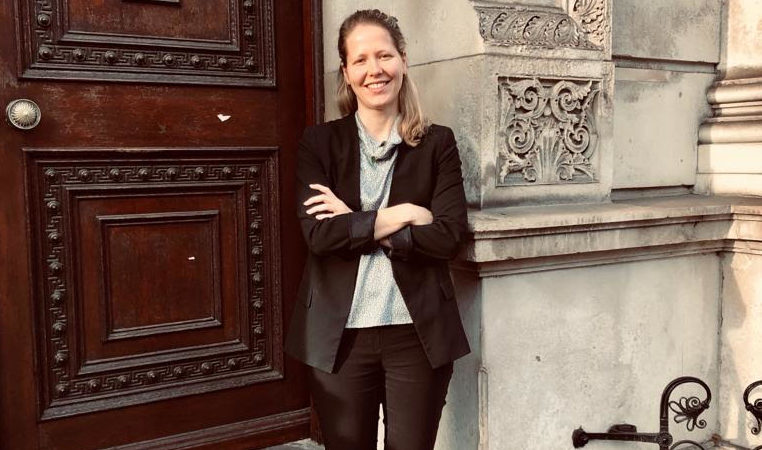Anna-Maria Rehbinder, an Edinburgh alumna, shares her journey on becoming a newly qualified solicitor working within the Government.
I’m 30 years old, from Finland, and I’m delighted to say I’ve just qualified as a solicitor, having completed my training contract with the Government Legal Department (GLD). I am now in my first role as a qualified lawyer, advising the Department for Exiting the European Union (DExEU) on policy development, and assisting with Parliamentary business and negotiations with the EU. It’s an exciting gig, but don’t ask me what I’ll be doing in two weeks – your guess is as good as mine.
How did I get here?
I studied an LLB at the University of Edinburgh with a year abroad at the National University of Singapore. I didn’t have a clear idea of what I wanted to do when I graduated, but I knew that private practice wasn’t for me.
Finishing the LLB, I went on to do two master’s degrees (which arguably is one degree too many). I did an Erasmus Mundus Masters in Law and Economics, and I spent a year in Paris doing a vocationally-focussed master’s with the University of Sorbonne, which was targeted at lawyers who want to work in international organisations or the diplomatic corps.
Having started on this path, I worked through a couple of internships with the EU, the UN and a law firm (definitely one too many), only to eventually come to terms with the reality that if you want to work as a lawyer you do have to qualify.
What does a GLD Training Contract Involve?
The GLD training contract was an opportunity to pursue my interests in politics, law and the public sector. I was offered a training contract two years in advance of the start date. To be eligible to qualify as a solicitor in the English and Welsh jurisdiction, I had to complete three modules of the Graduate Diploma in Law as well as the Legal Practice Course (LPC). GLD paid for the LPC and offered a living cost stipend. Make sure that you look up the most recent qualification criteria if you’re interested, as they may have changed or change imminently.
The GLD training contract is broken up into four seats, during which you spend one year in litigation and one year as an ‘advisory lawyer’. An advisory lawyer is based in the government department and they advise and assist the department with its day-to-day business. I did six months of public law litigation and six months in commercial litigation, and my advisory seats were with the Ministry of Housing, Communities and Local Government and DExEU.
I am sure that my fellow trainees would agree that the training contract has been an incredible experience. We didn’t choose the training contract to prepare bundles or photocopy (although of course you will do some of that too) or to work long hours. As a GLD trainee you are given real responsibility early on (like managing your own cases in the first year), and asked to advise on difficult legal problems that are unique and novel. Some of my highlights were attending a mediation and being given the responsibility to negotiate a sponsorship contract between the government and a large business.
An interest in politics is not strictly necessary (particularly as GLD now also offers training contracts entirely within its Commercial Law Group), but it makes it all so much more fun. Despite it being extraordinary times working in government – I have seen two elections and three cabinets in two years – you’ll find yourself chuckling re-watching ‘Yes, Minister’ and wondering how so little has changed.
Note: The Government Legal Profession offers around 60 legal trainee positions (training contracts and pupillages) each year to those looking to qualify as solicitors and barristers. The application process is expected to open around early July 2020. The trainee positions are available within a number of Government legal organisations – e.g. Government Legal Department, Competition and Markets Authority, HM Revenue & Customs Solicitor’s Office and the National Crime Agency. Anna-Maria studied for a law degree but applications are also welcome from those with a non-law degree. To find out more and to register your interest on the GLP mailing list, please visit www.gov.uk/glp
(Image credit: Anna-Maria Rehbinder)


